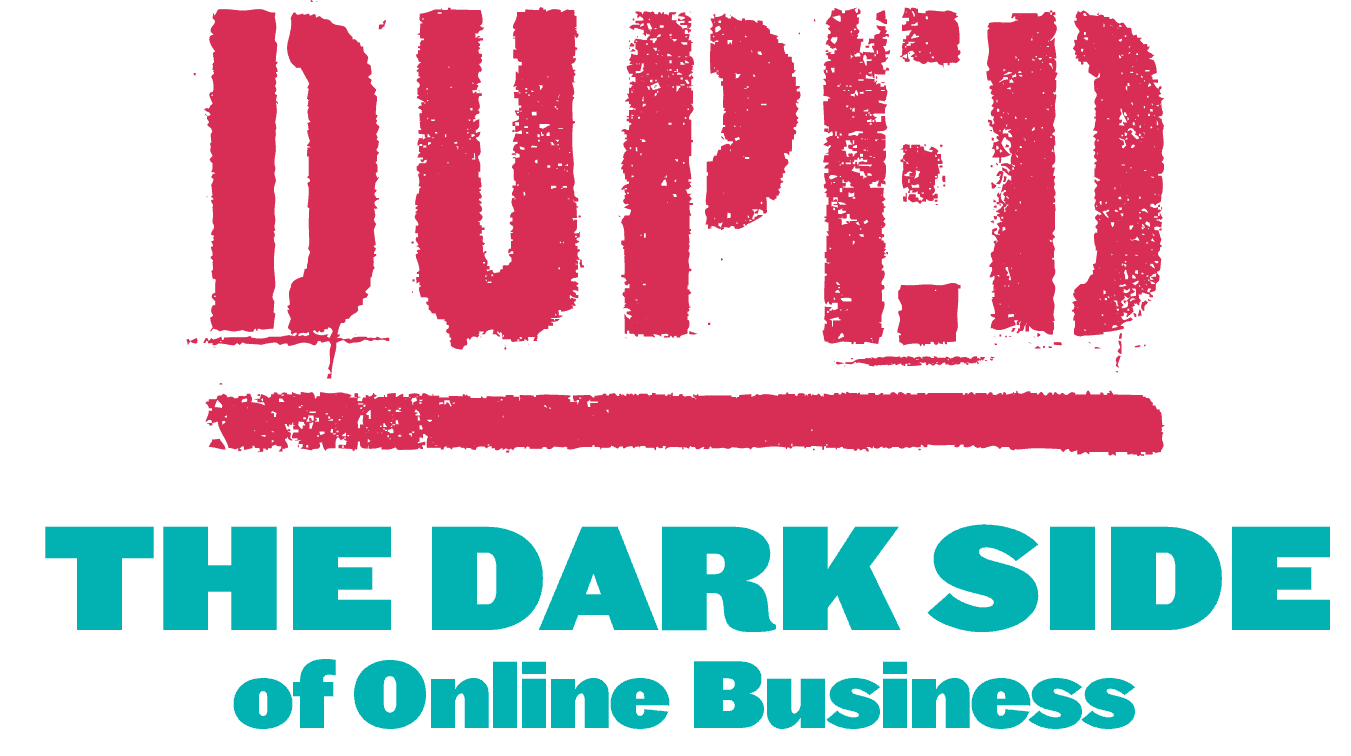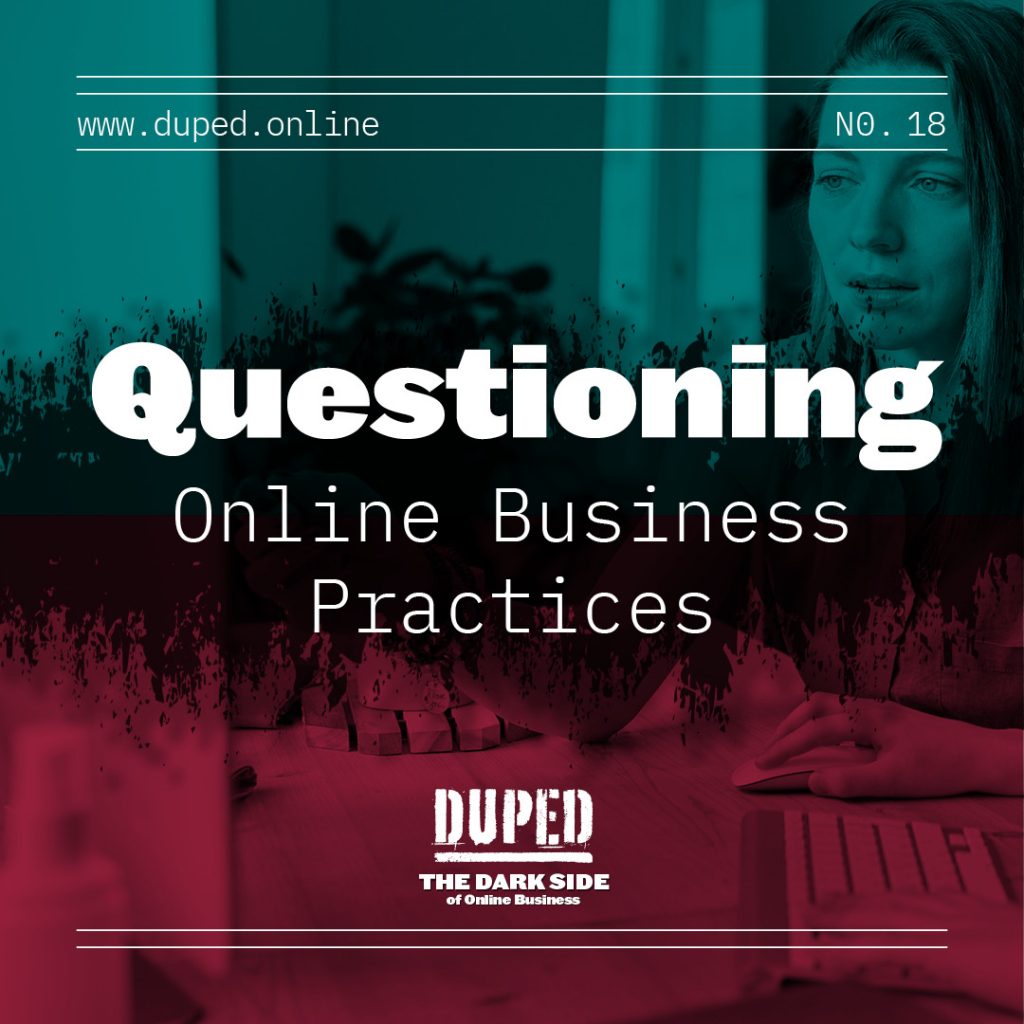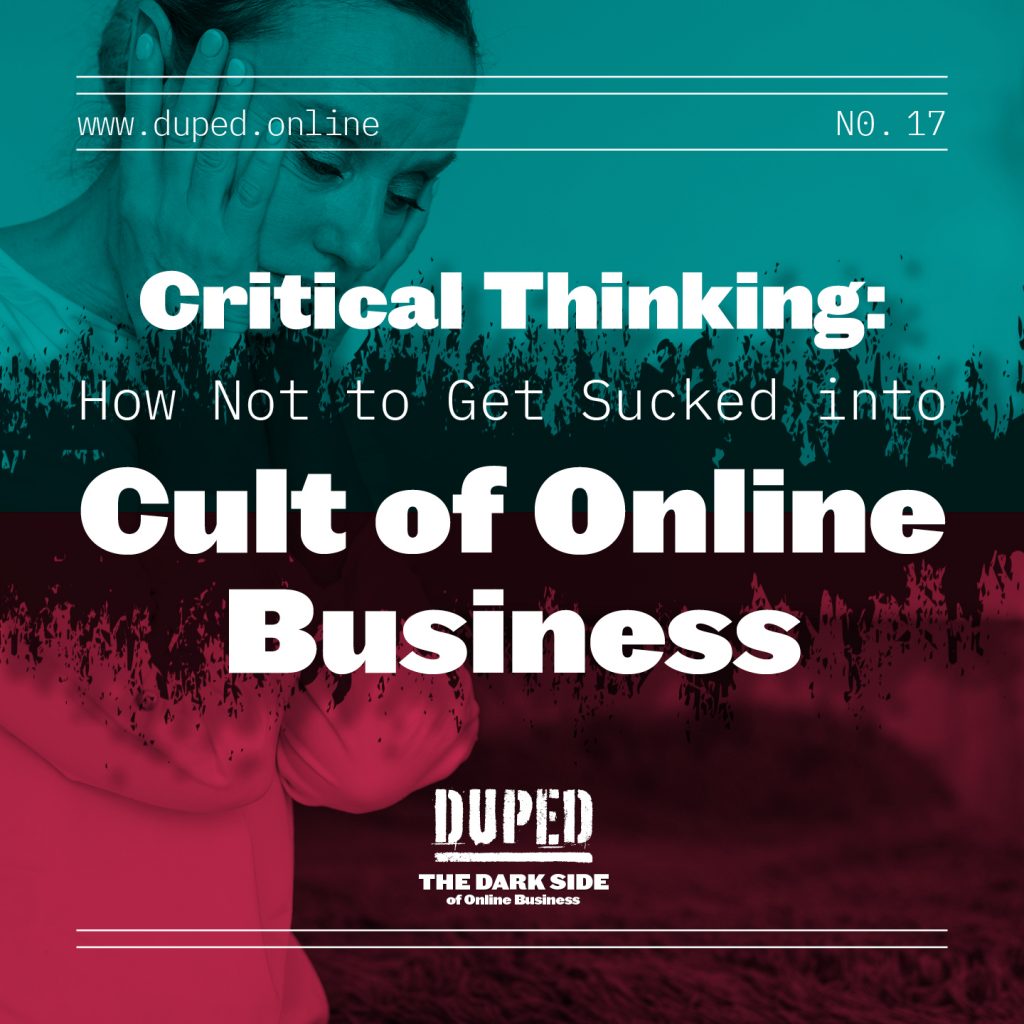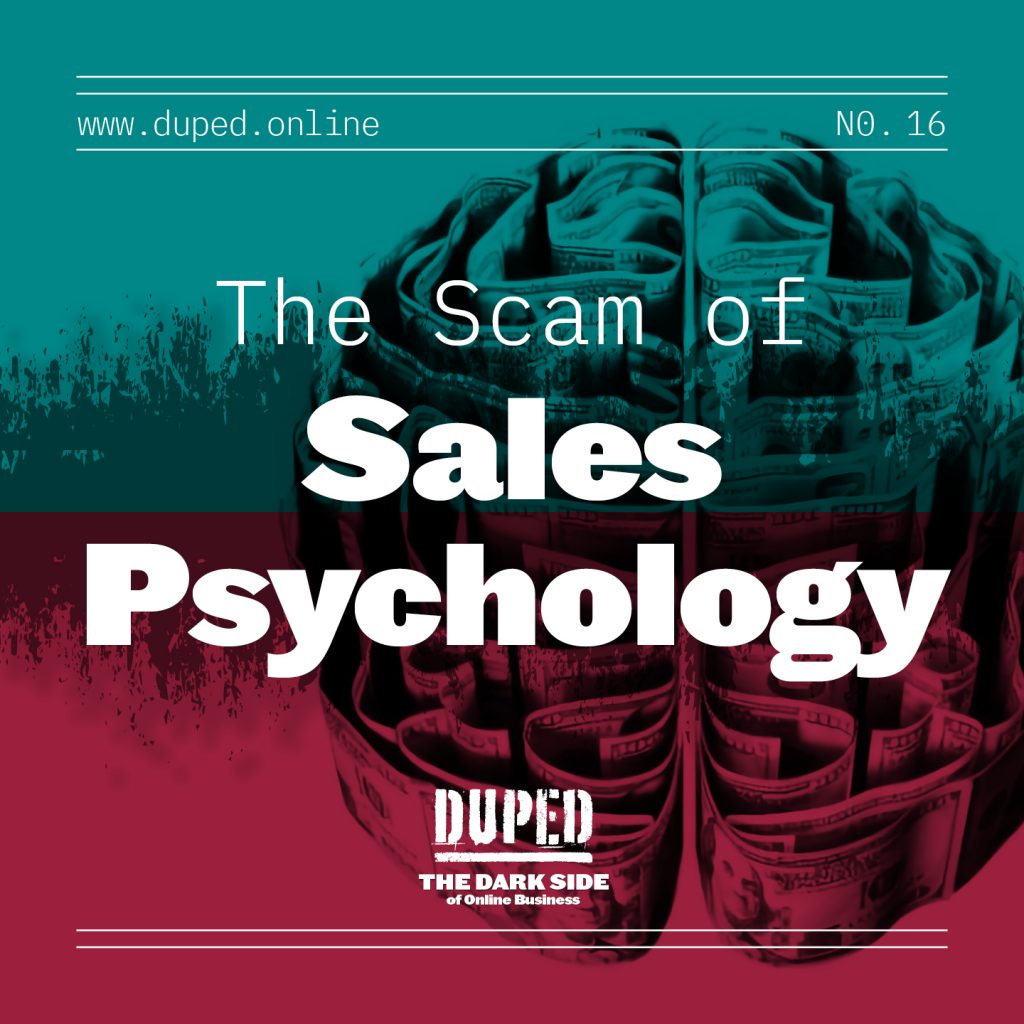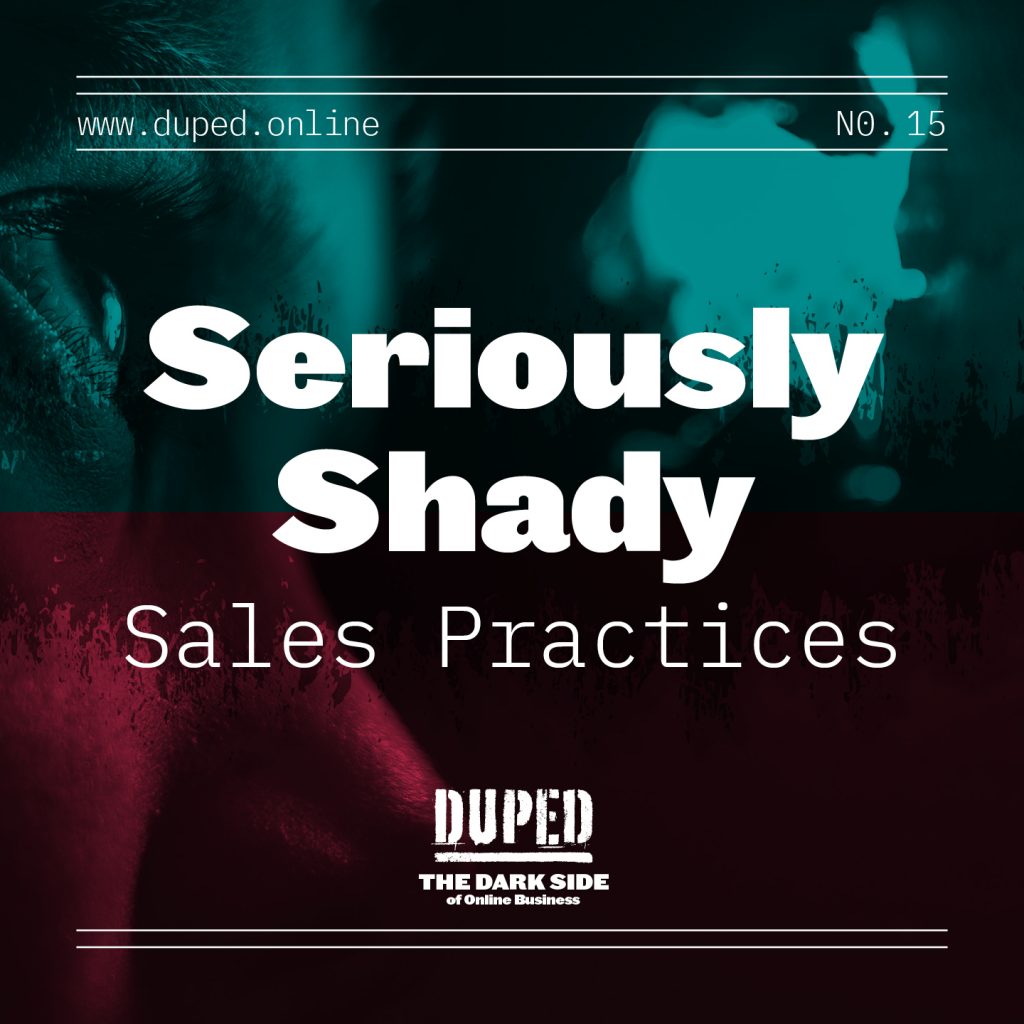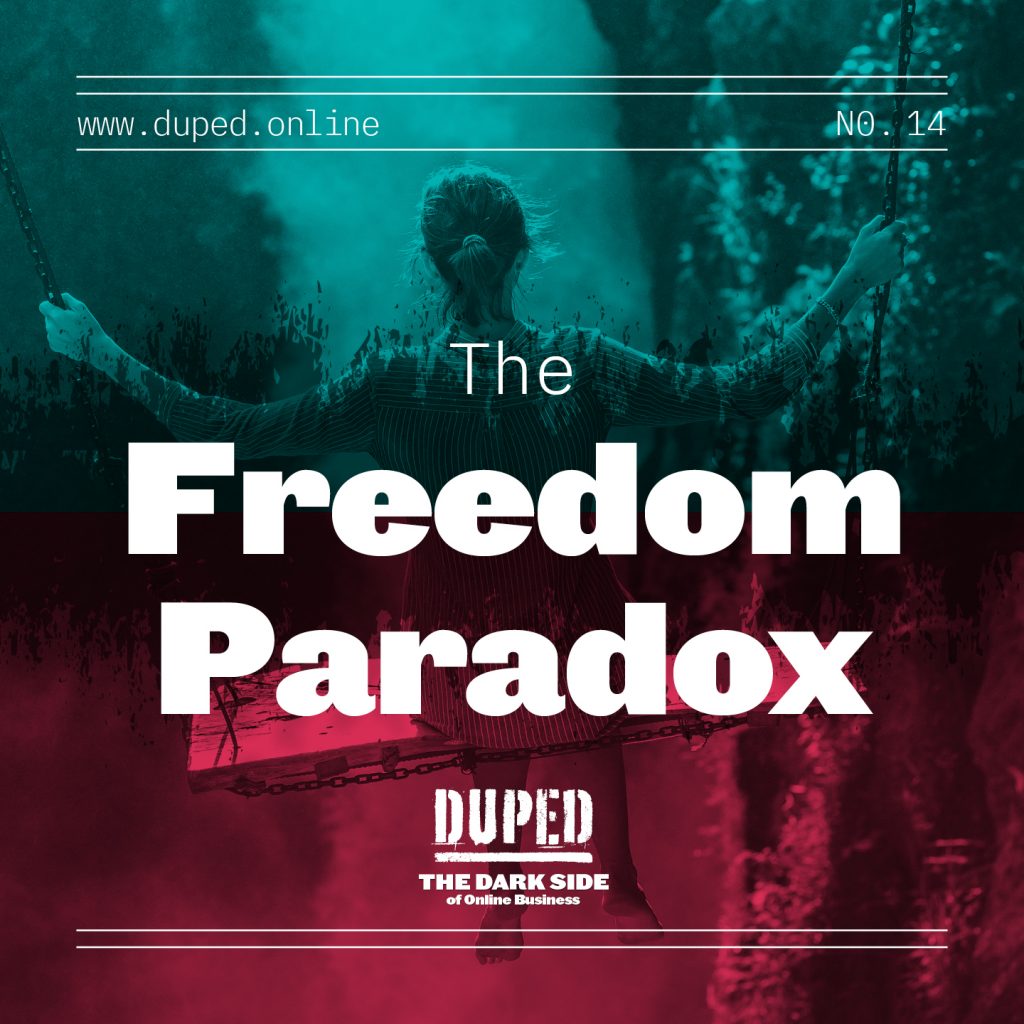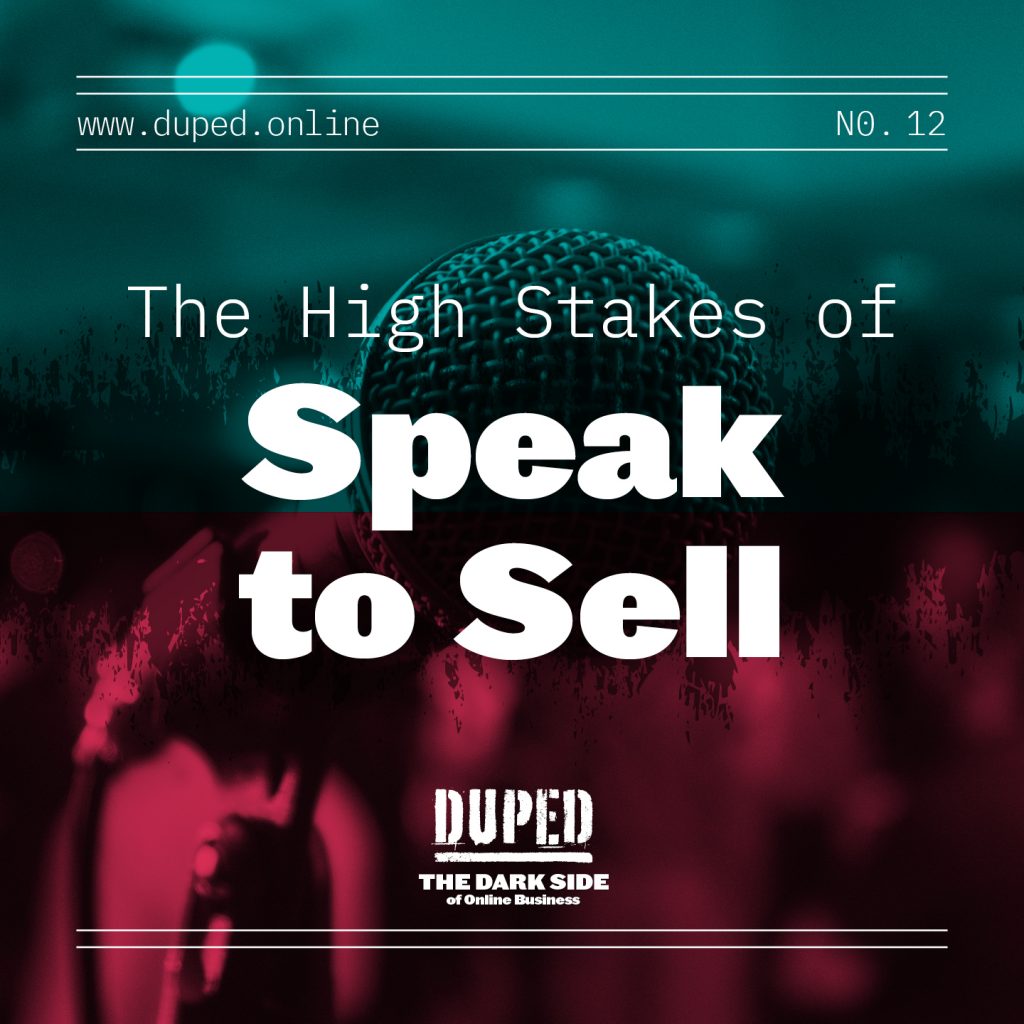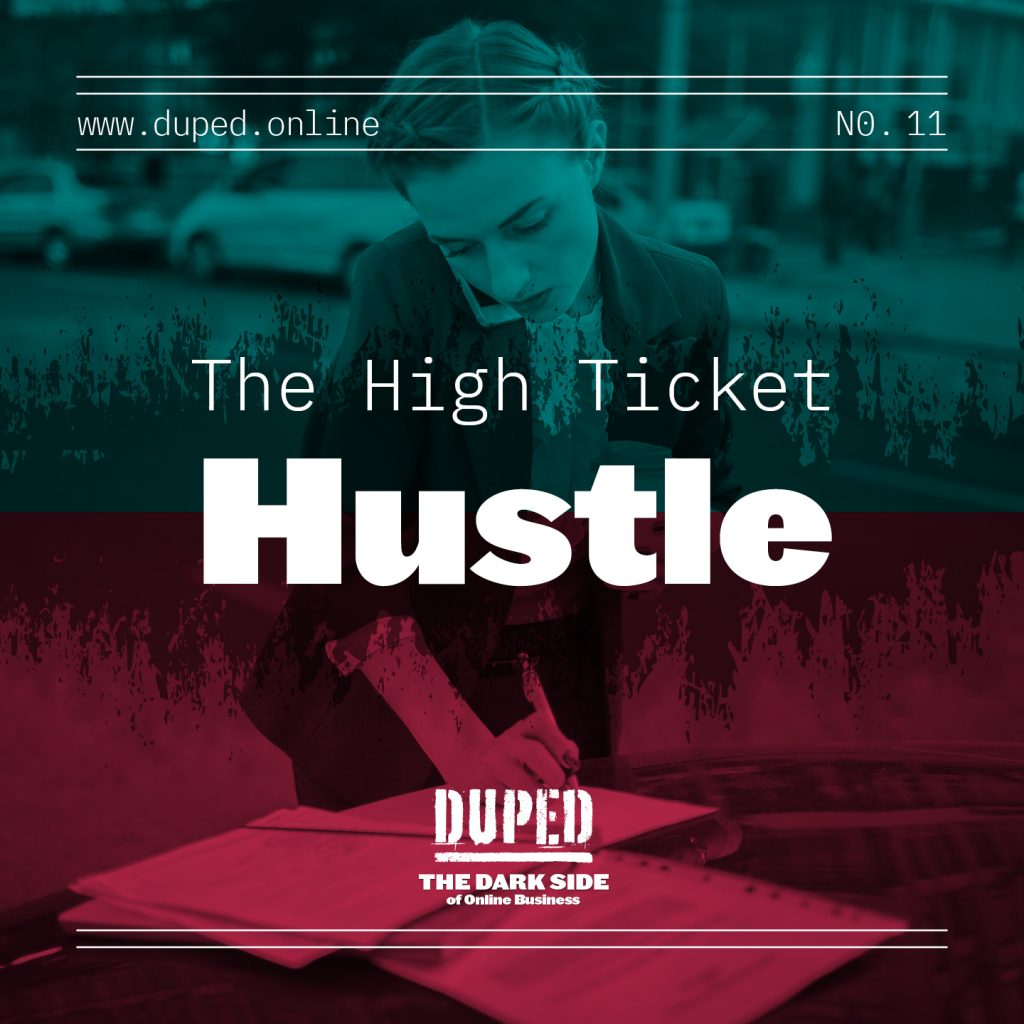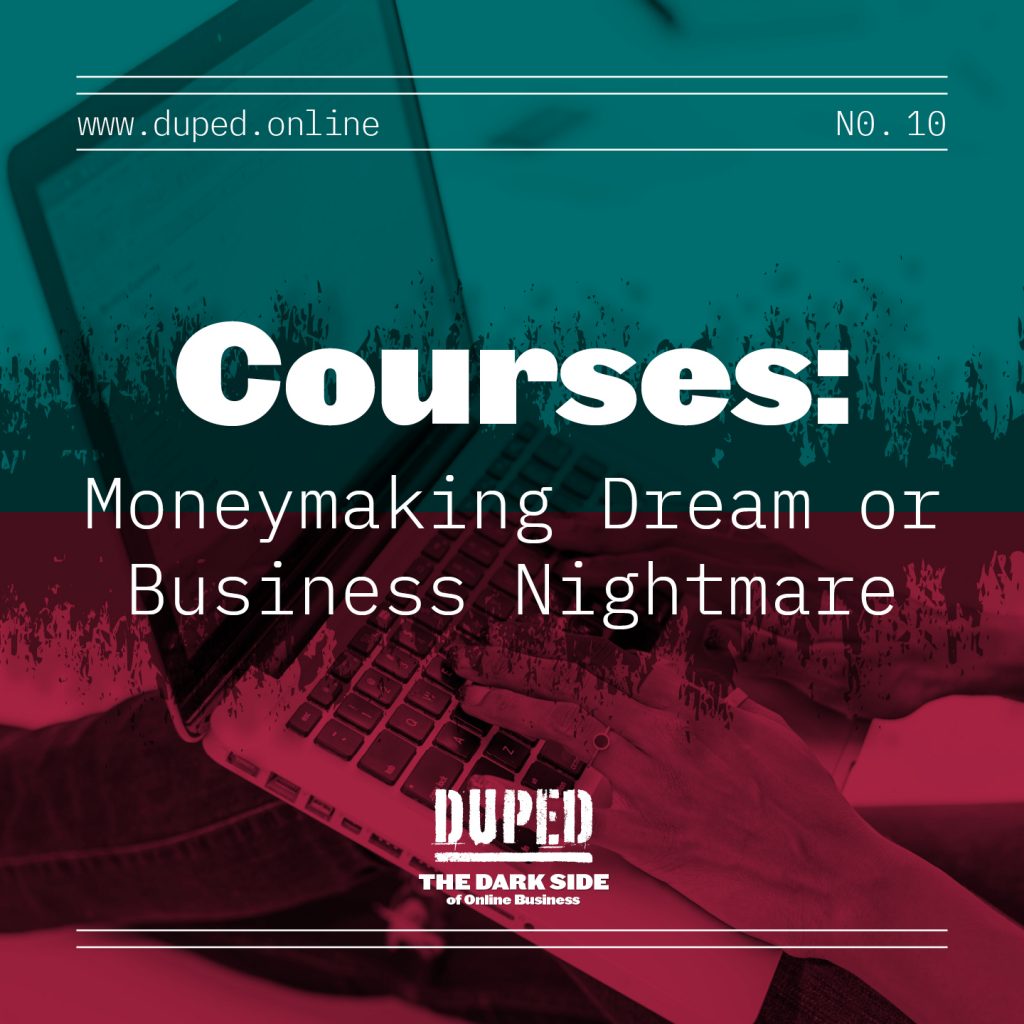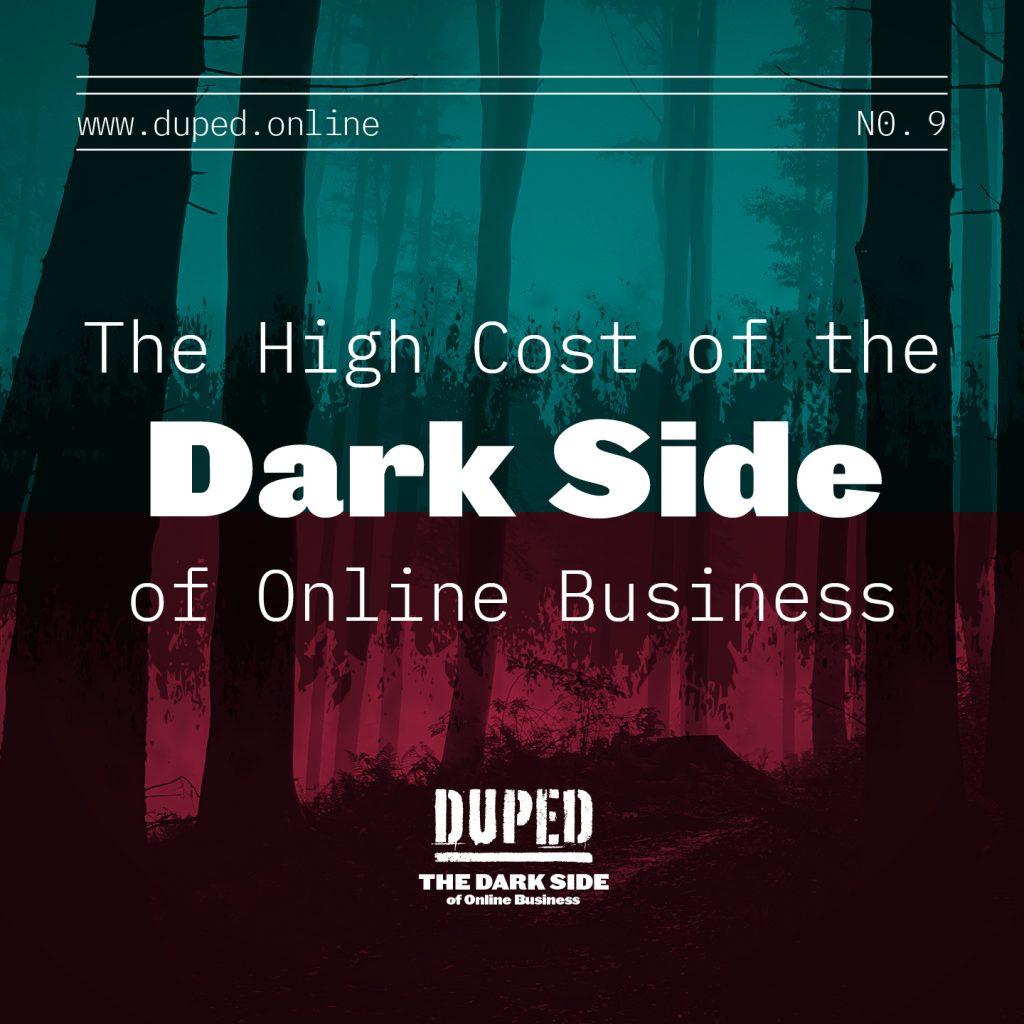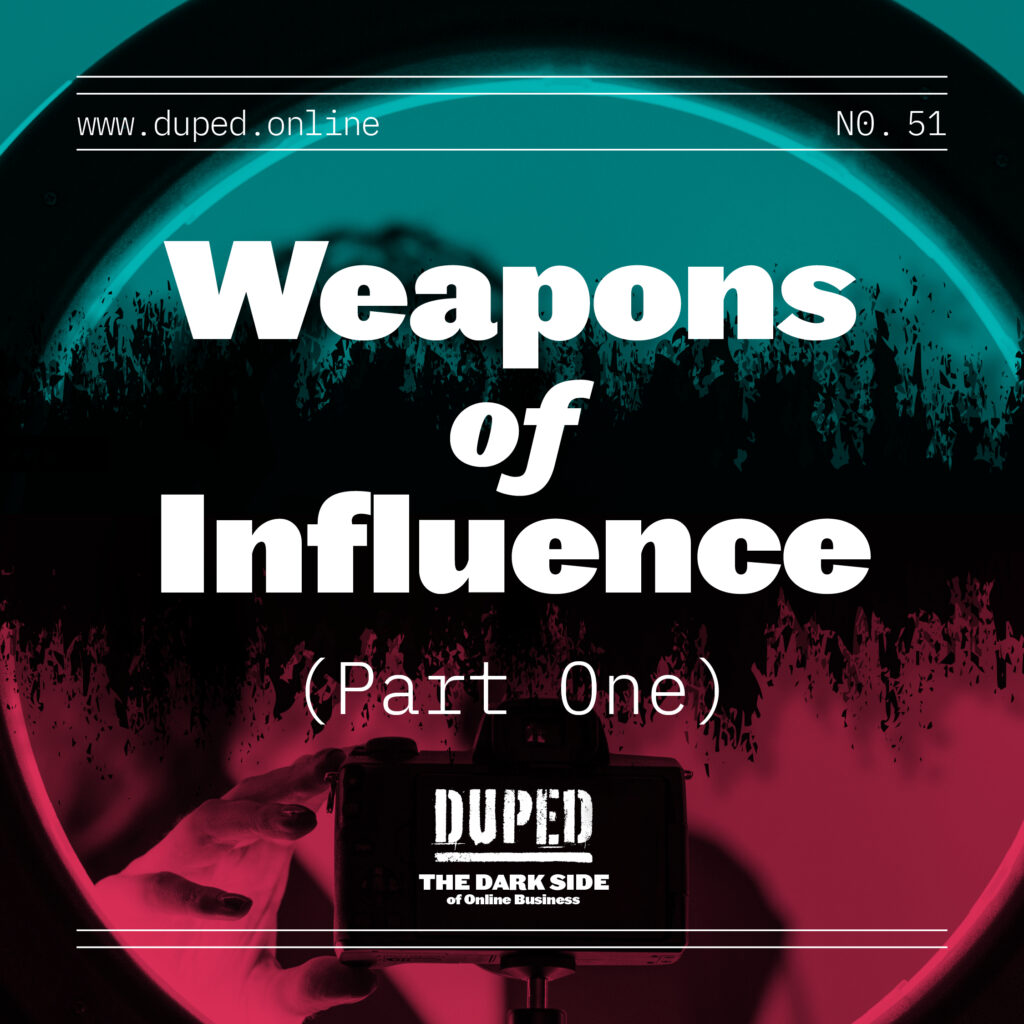
Weapons of Influence (Part One)
There’s one book that is the most used and abused in online business. Many celebrity entrepreneurs and top marketers cite it as influential.
Finally, we are going to examine it in depth so you can protect yourself from the principles taught in Robert Cialidini’s book Influence.

Today, we were supposed to do an updated look on persuasion in 2024, and we were shocked to realize that we never did a deep dive into what is the most influential, widely abused book in online business.
Influence: The Psychology of Persuasion by Robert Cialdini.
This will be a two-parter because we went down the rabbit hole, and there’s so much to cover. Today, we look at who Robert Cialidini is, his code of ethics for anyone who uses his work, and then deep dive into three of the seven weapons of influence. (We’ll cover the next four in the next episode.)
Who is Robert Cialidini?
Dr. Cialdini is a real expert. According to his CV, He has over 230 peer-reviewed articles and books on the science of persuasion. What he talks about in Influence or Pre-suasion is just the tip of the iceberg of his body of work. He researched persuasion in various settings including healthcare, parenting, and leadership.
He’s currently a Regents’ Professor Emeritus of Psychology and Marketing at Arizona State University (which means he’s retired—the dude is 79 years old now). He’s also advised President Obama and Secretary of State Clinton on their presidential campaigns.
But what impressed us the most was that on his About Page, he listed his ethics.
Dr. Cialdini’s Code of Ethics
For those who gain power from knowing and using the Science of Influence, these are Dr. Cialdini’s established ethical guidelines. With these Principles that he has codified over the last 35 years comes great responsibility to:
- Be truthful
- Forgo manipulation of others
- Forgo manipulation of facts
- Use the principle(s) that already exist naturally in your situation.
- Use the principle that demonstrates what is wise for all concerned
- Refrain from using any Principle in a way that could injure your relationship.
- Inform (that is, educate) people into agreement
- Ensure any “contrast” used is relevant to the situation
- Own up to any mistake ASAP. And remember the “but”.
Influence: The Book
The book was published in 1984. He wrote it as a pop psychology book. It didn’t discuss the research but was a conversational, fun read. He wanted to get these principles to the masses so that people could protect themselves from these “weapons of influence,” and he also knew it would be helpful to people in sales, marketing, politics, and leadership.
He’s not opposed to people using the principle of this book to enhance their powers of persuasion as long as they follow the ethical guidelines.
In subsequent editions, he added more research and kept the conversational tone. Michelle’s students freaking loved this book. It’s my favorite textbook ever.
The book is now in its sixth edition and has sold over five million copies. We can’t tell you how many web celebs have cited it as important (but not his ethics).
Initially, Cialidini identified six principles of persuasion, and in 2021, he added a seventh.
What does he mean by a principle?
“Each principle is examined as to its ability to produce a distinct kind of automatic, mindless compliance from people: a willingness to say yes without thinking first.”
We know we’ve talked about this before, but these principles are often used to suppress critical thinking.
Cialdini asserts that these “fixed action patterns” run like a computer program. The trigger (the principle) starts, and an action sequence begins. He refers to this as a Click, Run
Each of these principles is designed to run a program whether it is:
- Reciprocity
- Liking/Familiarity
- Scarcity
- Consistency
- Authority
- Social Proof
- Unity (the newest one in the bunch).
Let’s talk about the first three: reciprocity, liking and scarcity. We’ll talk about what it is, how it shows up in online business and how to protect yourself as a consumer. Then we’ll cover the remaining 4 in the next episode because this pod could be two hours long…and nobody wants that.
Reciprocity
What is it?
“The rule says we should try to pay in kind what another person has provided us.”
It’s why we feel that when someone compliments us, we must return the compliment. We have been indoctrinated into this rule since childhood.
Reciprocity is why a civilization functions. Overall, it is a good thing. However, it is easy to exploit because of guilt and feelings of indebtedness.
It’s potent because reciprocity is baked into us from the day we are born.
The Door in the Face technique involves making a large request and following it up with a small, reasonable one.
How is it used in online business?
- Downsells (Door in the Face)
- Lead magnets (Reciprocity with the not-so-free sample)
- People pitching for podcast leaving a review of the podcast
- Cold pitches, which do an SEO audit or IG audit and send it to you
- “Free” coaching calls
- Masterclasses or webinars
- Referrals and recommendations
How can you protect yourself?
- Be aware if you feel guilty for not wanting to buy something.
- The rule can be manipulated for unequal exchanges: Understand what you’re giving in the exchange.
- Watch out for uninvited indebtedness. Did you ask for the thing you now feel indebted for?
Liking/Familiarity (aka The Friendly Thief)
What is it?
“People prefer to say yes to those they like.”
The hallmarks of liking
- Physical attractiveness – white, pretty and thin privilege.
- Similarity – we like people who are like us & WHO like us.
- Compliments produce automatic liking.
How is it used in online business?
Cialdini said this in the newest edition of the book:
“How to use it in online marketing: Use the language of your audience. Using words, phrases, and slang common to the group will work even better. On the other hand, if you use words that your audience doesn’t use or doesn’t understand, you are creating a distance between you and giving them nothing to relate to. Social media and emails are perfect to interact with your audience. Make sure you first reach out to them without asking them to do anything—just as you would with your friends.”
Voice of customer research increases liking…because, of course, it does!
- BFF Next Door archetype
- Building parasocial relationships (sharing relatable content)
- Branded photo shoots
How can you protect yourself?
Cialdini admits liking is one of the hardest things to protect yourself from because it’s such a powerful feeling to be liked (being seen, heard and empathized with) and to like someone else.
How many times have you read a post on Reddit that started with “I really liked how she showed up on social media” and then it goes downhill into getting duped.
- Defense: Do I like this person more than I should?
Scarcity
What is it?
We’re more motivated by the potential of losing out on something than gaining something. If a resource is scarce, we are more likely to value it.
How is it used in online business?
- Disappearing bonuses.
- Pre-sale of a course. (E.g opened 75 spots, and it sold out in 53 minutes…man I was bummed I missed it)
- It’s never happening again – except when I don’t fill it.
- Raising the price of a program or course.
How can you protect yourself?
Even though scarcity is easy to spot in the wild, what makes it hard to defend against, according to Cialdini. “Part of the problem is that our typical reaction to scarcity hinders our ability to think. When we watch as something we want becomes less available, a physical agitation sets in.”
- Be aware when that agitation around missing out is present when you’re buying something.
- Ask yourself, is the scarcity real, or is it being added to juice the sales?
Final Thoughts
As we wrap up, we wanted to leave you with a few takeaways to keep in mind:
- These principles of influence are difficult to resist because they are baked into how we operate as human beings.
- Remember these two codes of ethics from Cialdini:
- Use the principle(s) that already exist naturally in your situation.
- Use the principle that demonstrates what is wise for all concerned
- Slow down your decision-making process (this is hard) so you can evaluate why you feel compelled to buy.
- Be aware of what is happening in your body – if you feel agitated, that tells you to slow down.
Links for this Episode:
- Influence: The Psychology of Persuasion by Robert Cialdini
- Cialdini’s CV
- Cialdini’s About Page
- Influence, New and Expanded
- The Door-in-the-Face Technique as a Compliance Strategy
- How to Spot a Celebrity Entrepreneur
- Friend or Foe? Understanding Parasocial Relationships in Marketing
- Chasing Celebrity Entrepreneurship
- Predatory Pricing Practices in the Online Business Pyramid Scheme
Join the

Patreon

for only $7/month and get a
monthly bonus episode,
behind-the-scenes content
and more.
